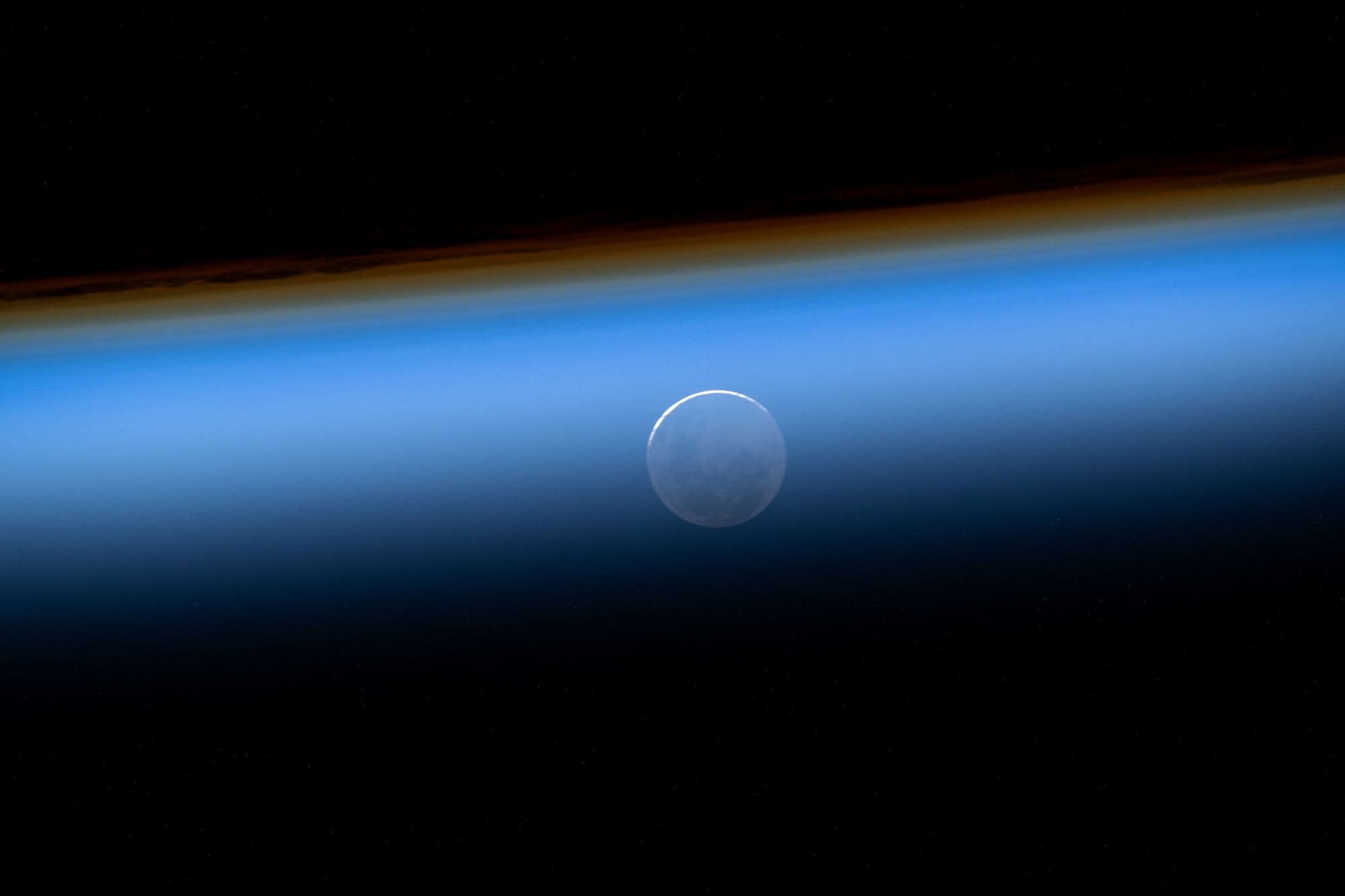Astronaut aboard ISS captured the new moon. In astronomy, the new moon is the first lunar phase, when the Moon and Sun have the same ecliptic longitude. At this phase, the lunar disk is not visible to the naked eye, except when it is silhouetted against the Sun during a solar eclipse. The original meaning of the term ‘new moon’, which is still sometimes used in calendrical, non-astronomical contexts, is the first visible crescent of the Moon after conjunction with the Sun. This thin waxing crescent is briefly and faintly visible as the Moon gets lower in the western sky after sunset.

Reference: ISS’ Tweet
See earthview photo gallery: LiVEARTH